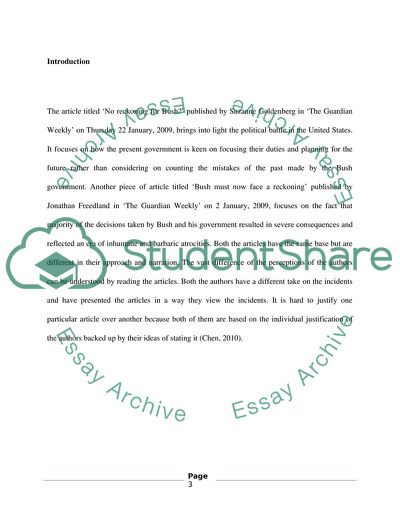Cite this document
(No reckoning for Bush by Suzanne Goldenberg vs. Bush Must Now Face a Case Study, n.d.)
No reckoning for Bush by Suzanne Goldenberg vs. Bush Must Now Face a Case Study. Retrieved from https://studentshare.org/creative-writing/1742916-critique-assignment
No reckoning for Bush by Suzanne Goldenberg vs. Bush Must Now Face a Case Study. Retrieved from https://studentshare.org/creative-writing/1742916-critique-assignment
(No Reckoning for Bush by Suzanne Goldenberg Vs. Bush Must Now Face a Case Study)
No Reckoning for Bush by Suzanne Goldenberg Vs. Bush Must Now Face a Case Study. https://studentshare.org/creative-writing/1742916-critique-assignment.
No Reckoning for Bush by Suzanne Goldenberg Vs. Bush Must Now Face a Case Study. https://studentshare.org/creative-writing/1742916-critique-assignment.
“No Reckoning for Bush by Suzanne Goldenberg Vs. Bush Must Now Face a Case Study”. https://studentshare.org/creative-writing/1742916-critique-assignment.


